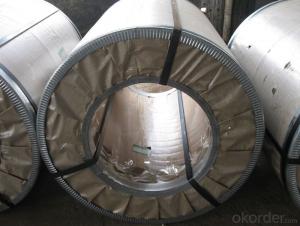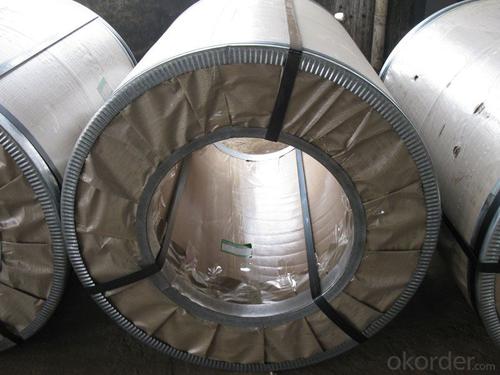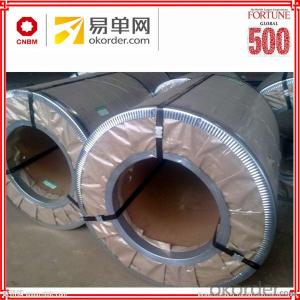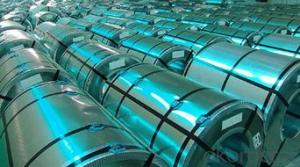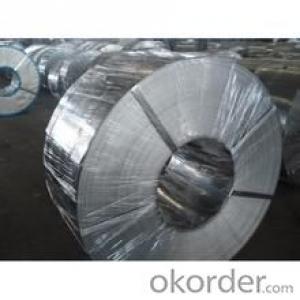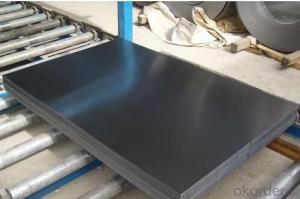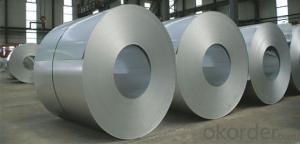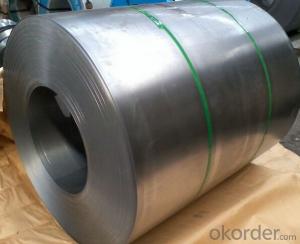Chinese Best Cold Rolled Steel Coil--High Strength Low Price in China
- Loading Port:
- China main port
- Payment Terms:
- TT OR LC
- Min Order Qty:
- 50 m.t.
- Supply Capability:
- 10000 m.t./month
OKorder Service Pledge
OKorder Financial Service
You Might Also Like
Chinese Best Cold Rolled Steel Coil--High Strength Low Price in China
1.Structure of Cold Rolled Steel Description:
The raw material of cold rolled steel coil/sheet is high quality hot rolled product, and after pickling continuous rolling, degreasing, annealing,skin pass,slitting and cut to length line etc. Along with it many kinds of new technology and new process of global cold rolling production have been applied. Therefore the quality of the goods could be guaranteed. The product is widely used in outdoor and interior decoration, furnishing manufacturing, home appliance, automobile etc.
2.Main Features :
• Excellent process capability
• Smooth and flat surface
• Workability, durability
• Excellent heat resistance performance
3. Cold Rolled Steel Images
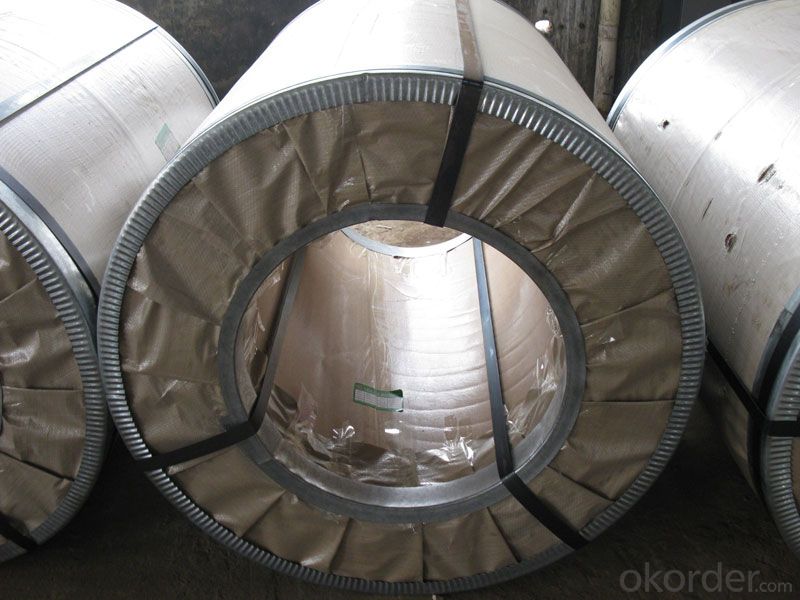
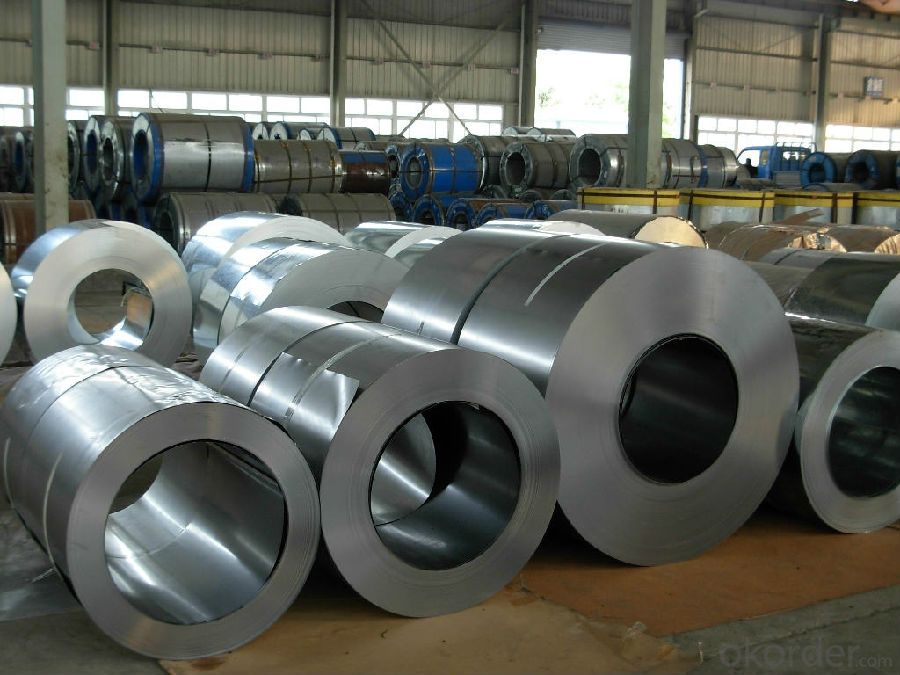
4.Cold Rolled Steel Specification
Standard:AISI,ASTM,DIN,GB,JIS,JIS G3302 ASTM 653M EN10142
Grade: Q195~Q345
Thickness: 0.16mm~2.0mm
Width: 1250mm MAX
Coil weight:3-12 MT
Coil ID:508/610mm
FAQ
1.How to guarantee the quality of the products?
We have established the international advanced quality management system,every link from raw material to final product we have strict quality test.
2. How long can we receive the product after purchase?
Usually within thirty working days after receiving buyer’s advance payment or LC. We will arrange the factory manufacturing as soon as possible. The cargo readiness usually takes 15-25 days, but the shipment will depend on the vessel situation.
- Q: What is the average surface finish tolerance for steel coils?
- The average surface finish tolerance for steel coils can vary depending on the specific requirements and standards set by the industry or customer. Generally, it ranges from 10 to 20 micro-inches (0.25 to 0.5 micrometers), but it is important to consult the relevant specifications for the specific application.
- Q: I have a new stainless steel trash compactor under a butcher block counter. We refinished the countertop, but unfortunately the person who did it wasn't careful with the orbital sander and sanded the top edge of the stainless steel compactor door, ruining the finish. The sander marks are not deep - just surface scratches - but they are unsightly. Is there any way to restore the finish to the stainless steel without having to buy a new door?
- This Site Might Help You. RE: How to refinish stainless steel appliance? I have a new stainless steel trash compactor under a butcher block counter. We refinished the countertop, but unfortunately the person who did it wasn't careful with the orbital sander and sanded the top edge of the stainless steel compactor door, ruining the finish. The sander marks are not...
- Q: What are the different types of steel coil storage systems?
- There are several different types of steel coil storage systems, including coil racks, coil cradles, coil saddles, and coil bunks. Each of these systems is designed to safely and efficiently store steel coils in a warehouse or manufacturing facility. Coil racks are typically used for larger, heavier coils and have adjustable arms to accommodate different sizes. Coil cradles are used for smaller coils and provide a stable base for storage. Coil saddles are specifically designed to hold and transport coils with overhead crane systems. Coil bunks are used for storing large quantities of coils and provide a stacking system to maximize space utilization.
- Q: What are the different methods of welding steel coils?
- There are several different methods of welding steel coils, each with its own advantages and applications. The most common methods used in welding steel coils include: 1. Resistance Welding: This method uses pressure and electric current to generate heat and join the steel coils together. It is commonly used for high-speed production and can be further categorized into spot welding, seam welding, and projection welding. 2. Arc Welding: This method involves creating an electric arc between an electrode and the steel coils, which generates intense heat and melts the metal. There are various types of arc welding techniques, such as shielded metal arc welding (SMAW), gas metal arc welding (GMAW), and flux-cored arc welding (FCAW). 3. Laser Welding: Laser welding utilizes a highly focused laser beam to melt and join the steel coils together. This method offers precise control, high welding speeds, and minimal heat-affected zones, making it suitable for thin materials and intricate designs. 4. Electron Beam Welding: This technique employs a concentrated beam of high-velocity electrons to melt and fuse the steel coils. It is commonly used for welding stainless steel and other high-temperature alloys, as it provides deep penetration and minimal distortion. 5. Friction Stir Welding: In this method, a rotating tool with a pin is plunged into the steel coils, creating heat through friction. The softened material is then stirred together to form a solid joint. It is commonly used for joining aluminum, but can also be applied to steel coils. 6. Ultrasonic Welding: Ultrasonic welding involves applying high-frequency vibrations to the steel coils, which creates friction and generates heat to fuse the materials together. This method is commonly used for smaller steel coils and can provide fast and efficient welding with minimal distortion. These are some of the different methods of welding steel coils, each offering unique advantages and suitable for specific applications. The choice of welding method depends on factors such as the type and thickness of the steel, desired strength and quality of the weld, production speed, and cost considerations.
- Q: How do steel coils contribute to the manufacturing of oil and gas equipment?
- Steel coils are an essential component in the manufacturing of oil and gas equipment. These coils are typically made from high-quality steel that is durable, strong, and resistant to corrosion, making them ideal for withstanding the harsh environments and conditions encountered in the oil and gas industry. One of the primary applications of steel coils in oil and gas equipment manufacturing is in the fabrication of pressure vessels. Pressure vessels are crucial components used for storing and transporting various fluids and gases under high pressure. Steel coils are used to form the cylindrical shells of these vessels, providing the necessary strength and structural integrity to withstand the internal pressure. Steel coils are also utilized in the construction of oil and gas pipelines. These pipelines are responsible for transporting vast quantities of oil and gas over long distances. Steel coils are used to manufacture the pipes that make up these pipelines, providing the necessary strength, durability, and resistance to corrosion. The coils are rolled and welded to form seamless or welded pipes, which are then coated or lined to prevent corrosion and enhance their longevity. Furthermore, steel coils are instrumental in the production of drilling equipment used in the extraction of oil and gas. This equipment includes drill bits, casings, and wellheads, which are crucial for drilling and completing wells. The coils are used to fabricate these components, ensuring they can withstand the demanding conditions encountered during drilling operations. In addition to their structural applications, steel coils are also used in the manufacturing of ancillary equipment such as tanks, storage containers, and heat exchangers. These components play a vital role in the processing, storage, and distribution of oil and gas. Steel coils provide the required strength and durability to handle the harsh conditions and corrosive substances encountered in these processes. Overall, steel coils are indispensable in the manufacturing of oil and gas equipment. Their strength, durability, and resistance to corrosion make them a preferred choice in the industry. By contributing to the fabrication of pressure vessels, pipelines, drilling equipment, and ancillary components, steel coils ensure the safe and efficient extraction, processing, and transportation of oil and gas.
- Q: I am a beginner and have a slow to average swing speed. Should i get graphite or steel shafts for my irons and does it make a difference?
- The traditional answer was that graphite because the shafts weigh less than steel increase club head speed and would help improve distance for folks with slower swing speeds. The sacrifice was that graphite was less accurate than steel. That is all out of date thinking these days. So much has changed. Composite graphite shafts are now more stable and accurate than before while steel shaft technology has produced lighter steel shafts than before. That being said, I still recommend the graphite unless you are young and still growing. If you are young, then you will most probably grow into the steel shafts. By that I mean that your ability to swing the club faster should improve as you grow physically and learn to swing the club even better.
- Q: Why can't you use a lead shot only choke with steel shot or a steel shot only choke with lead shot? I have used a lead only choke with steel shot and my shotgun shot fine and there was no damage to the choke.
- The reasoning behind lead shot only is that those chokes (usually) have a very tight constriction. It can cause severe and dangerous pressure spikes when a charge of steel shot (almost impossible to compress compared to lead) gets slammed through them. Another reason could be that the tubes are either very soft steel or very thin and steel shot will damage them quickly. I personally haven't seen any steel shot ONLY tubes before just ones marked for lead and/or steel or ok for steel shot.
- Q: What are the benefits of using steel coils in the manufacturing of pipes?
- There are several benefits of using steel coils in the manufacturing of pipes: 1. Strength and durability: Steel is known for its strength and durability, making it an ideal material for pipes. Steel coils provide a strong foundation for pipes, ensuring they can withstand high-pressure applications and resist damage from external factors such as impact or corrosion. This strength and durability enhance the longevity of the pipes, reducing the need for frequent replacements. 2. Flexibility: Steel coils offer flexibility in terms of customization and design. They can be easily formed into various pipe shapes and sizes, allowing manufacturers to produce pipes that meet specific project requirements. This flexibility also enables the production of seamless pipes, which have superior structural integrity and reduced risk of leakage. 3. Thermal resistance: Steel has excellent thermal conductivity, meaning it can efficiently transfer heat or cold. This property is crucial for pipes used in industries such as oil and gas, where temperature control is essential. Steel coils enable the manufacturing of pipes that can effectively handle extreme temperatures, preventing any damage to the pipes or the substances flowing through them. 4. Cost-effectiveness: Steel coils can be produced in large quantities, resulting in economies of scale and lower production costs. This cost-effectiveness is beneficial for both manufacturers and consumers, as it helps keep the overall cost of pipes down. Additionally, the durability of steel pipes reduces the need for frequent repairs or replacements, saving money in the long run. 5. Corrosion resistance: Steel coils can be coated with protective layers to enhance their resistance to corrosion. This corrosion resistance is crucial in applications where pipes come into contact with corrosive substances or are exposed to harsh environmental conditions. By using steel coils with appropriate coatings, manufacturers can ensure that their pipes have a longer lifespan and maintain their structural integrity under challenging circumstances. Overall, the use of steel coils in pipe manufacturing offers numerous advantages, including strength, flexibility, thermal resistance, cost-effectiveness, and corrosion resistance. These benefits make steel coils a preferred choice for many industries that rely on durable and efficient piping systems.
- Q: Im looking at some knives and am wandering if they use good steel one is this case knife and its 54 dollars Do they use good steel or not Iv never had a good experience with Case but am wandering if they use good steel now? if you all have any other recommendations let me hear them I got my Selection from here so any others wont hurt. so basic break down does case use good steel know?
- Case knives are top quality in workmanship. Many have collectors vlaue. I once found an antique four-bladed Case knife is a school yard that had a bone handle. There are basically three types of knives purchased by those who purchase them for practical uses: Pocket knives, made principally for whittling and gneral light use Lock bladed knives Sheath knives I'm not including such novleties as switchblades or throwing knives The latter two types of knives are designed more for outdoor use. Typically they are more duarble and have high quality steel that enables the knife to hold an edge for a longer period of time than a knife made of softer steel. Pocket knives, by contrast, have smaller, thinner blades. Moreover, their steel tends to be a little softer. Comparable brands to Case would include Boker, Old- Timer and Uncle Henry (both Schrade-Walden tradenames), Camillus and others. Overall, I think you would be pleased with a Case knife. Their quality certainly exceeds such brands as Imperial or Queen.
- Q: What are the common coil coating materials?
- The common coil coating materials include polyester, polyvinylidene fluoride (PVDF), polyurethane, epoxy, and acrylic.
Send your message to us
Chinese Best Cold Rolled Steel Coil--High Strength Low Price in China
- Loading Port:
- China main port
- Payment Terms:
- TT OR LC
- Min Order Qty:
- 50 m.t.
- Supply Capability:
- 10000 m.t./month
OKorder Service Pledge
OKorder Financial Service
Similar products
Hot products
Hot Searches
Related keywords
